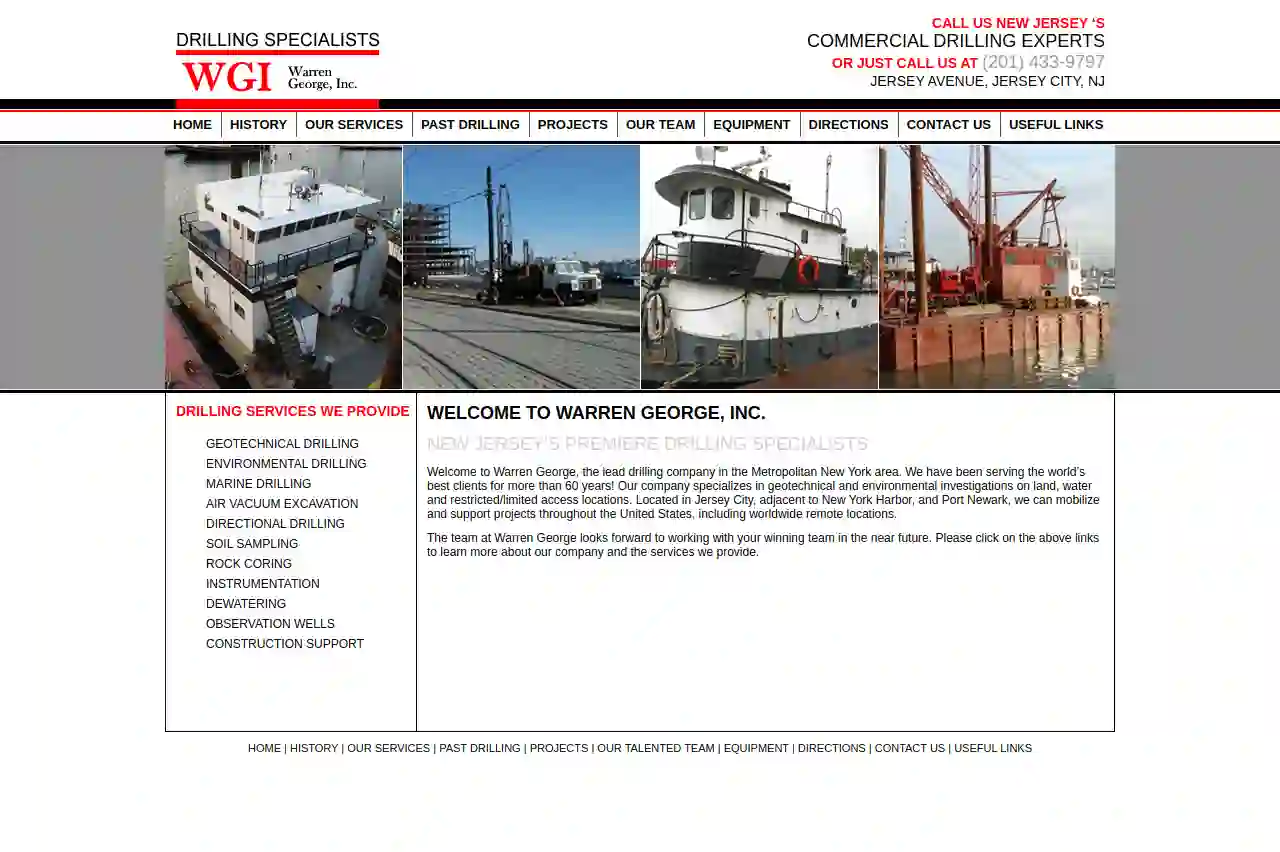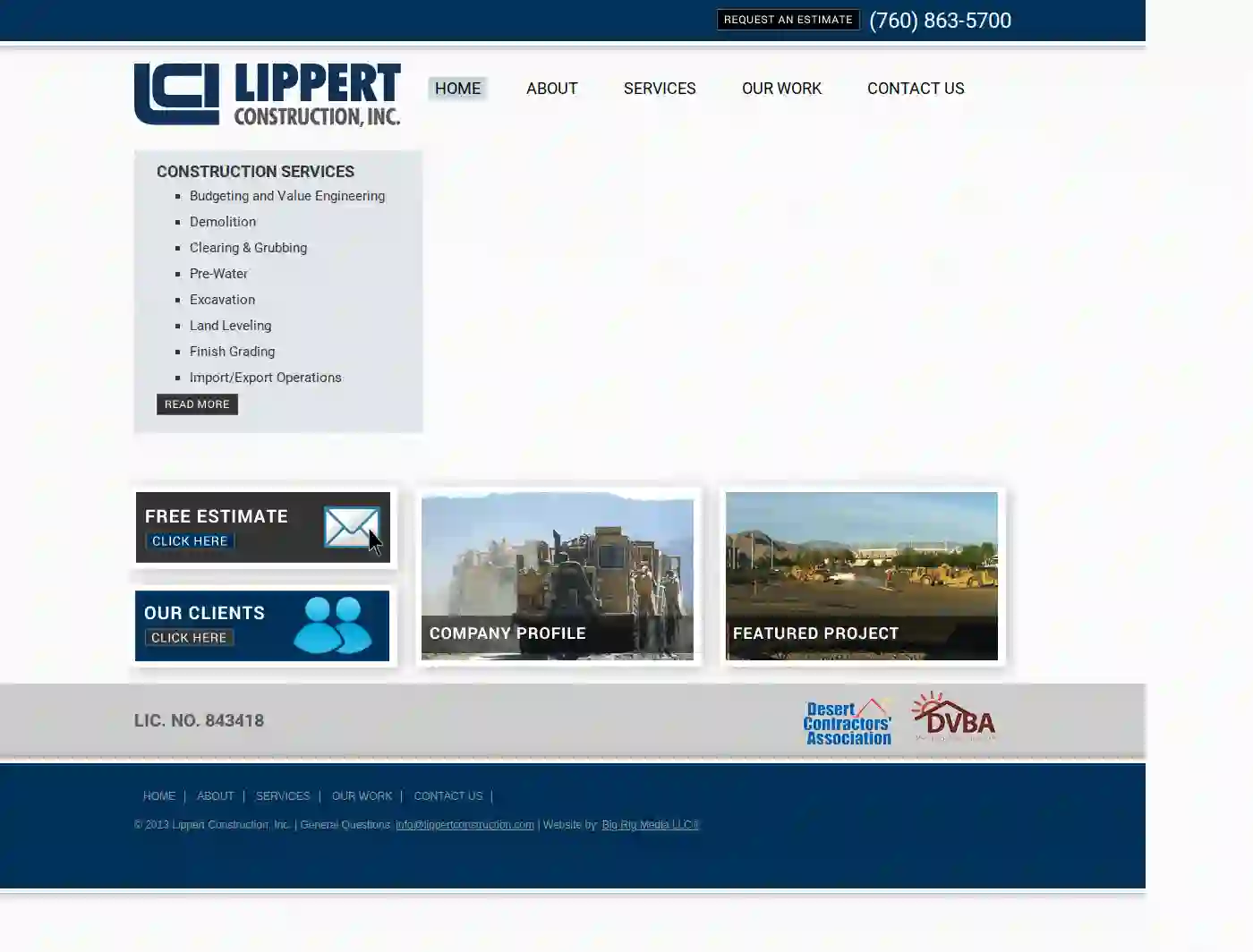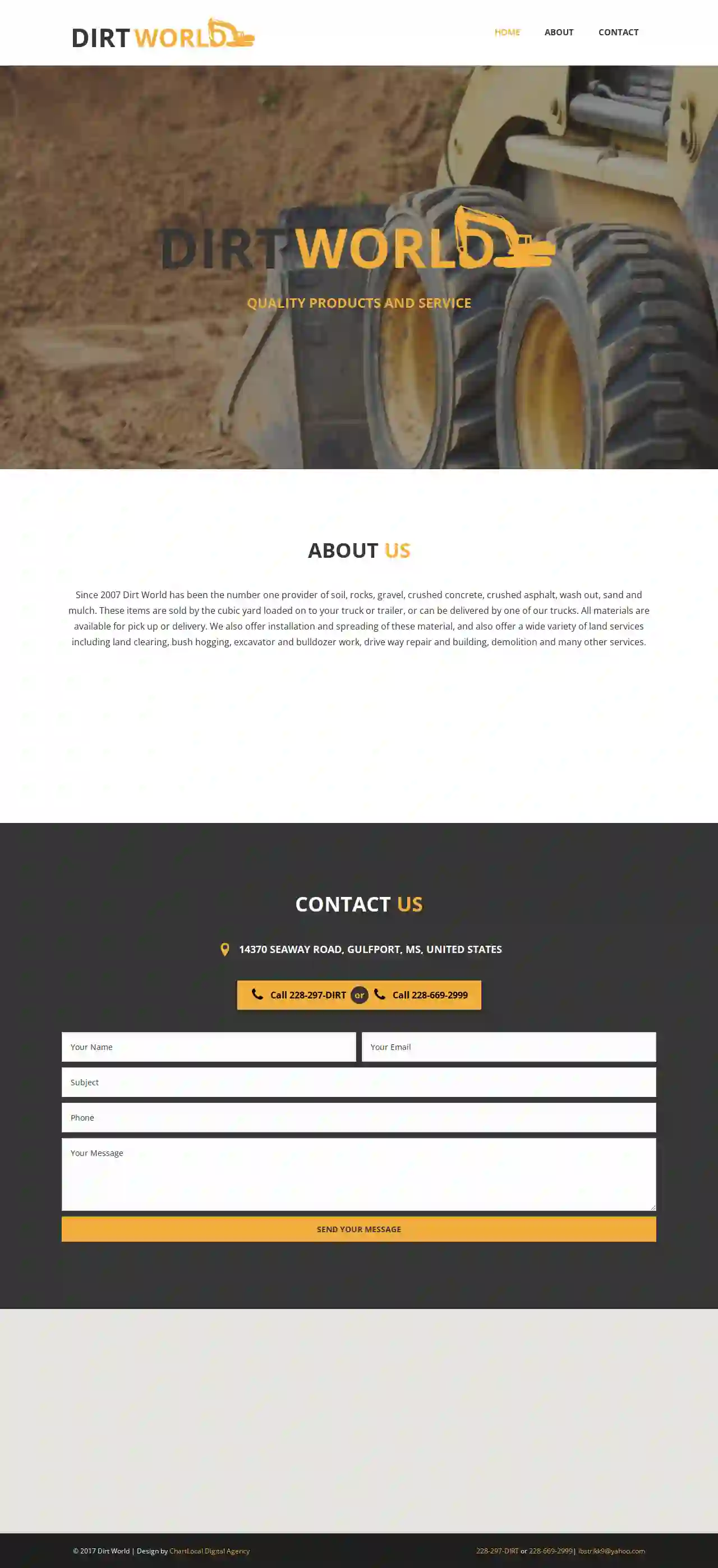Demolition Contractors Royal Oak
Best Demo Contractors in Royal Oak
Get multiple Structure Demolition quotes for your project today! Compare profiles, reviews, accreditations, portfolio, etc... and choose the best offer.

Aazul Home Constructions, LLC.
51 reviews1525 John F. Kennedy Blvd, Jersey City, 07305, USAAZUL HOME CONSTRUCTIONS is leading quality projects. AAZUL HOME CONSTRUCTIONS is committed to providing our clients with quality home renovations, repairs and remodeling. As licensed and insured construction specialists we can manage all your construction needs ensuring that your project is completed on time and on budget; in compliance with all state and local building codes and requirements. We pride ourselves on creating innovative construction solutions. Our goal is to use our knowledge and experience to add value to any project we take on. In short, AAZUL HOME CONSTRUCTIONS means excellence. It's more than construction. AAZUL HOME CONSTRUCTIONS is focused on customer experience, exceeding expectations, meeting objectives and providing value in our projects to all of our clients. Our craftmanship, professionalism and quality of work speak volumes to our core mission of customer satisfaction.
- Services
- Why Us?
- Gallery
Get Quote
Linsley Excavating Inc
59 reviews7610 Division Drive, Battle Creek, 49014, USWelcome to Linsley Excavating, Inc. We're a family owned company that's been around for over 45 years. We've worked in oilfields, subdivisions and commercial properties as well as subcontracting work. We service southwest Michigan. We're a family owned company that's been around for over 45 years. We've worked in oilfields, subdivisions and commercial properties as well as subcontracting work. We service southwest Michigan.
- Services
- Why Us?
- Gallery
Get Quote
Kalamazoo Excavation and Septic
5109 reviews2425 South 11th Street, STE. A, Kalamazoo, 49009, USFive-Star Excavation Services When it comes to excavation projects, choosing the right company is essential. It will determine whether your project is a success or failure — and mistakes can be costly for many years down the road. Kalamazoo Excavation’s crews are the best around, and they won’t stop until every job is done correctly, professionally, and to the highest industry standards. Our services include both commercial and residential: New construction Demolition Sewer and water — service installation or repair Septic systems — new or replacement Driveways and culverts Site clearing Barn and shed prep Grading and excavation We service all of southwest Michigan, including Allegan, Barry, Berrien, Branch, Cass, Eaton, Hillsdale, Kalamazoo, St. Joseph, and Van Buren counties. We work very closely with local developers and county health departments to ensure the correct scope and design of our projects. This ultimately protects homeowners by providing environmentally friendly and long-lasting solutions. Anyone who has worked with us knows — the only thing better than the quality of our work is the caliber of our people. They show up and get it done every day, anticipating and solving problems while treating our customers like friends and family. Our customers describe us as: Knowledgeable Punctual Dependable Honest Diligent Professional Responsive Friendly Courteous Attentive to detail Why Choose Kalamazoo Excavation? A Mission-Driven Excavation Team Our Mission Create the most productive excavation team in the WORLD through hard work, dedication, and commitment to excellence. We will innovate our industry while being a family-oriented team who achieves success by living our Core Values. Core Values Veteran — Here we value veterans and are thankful for our freedom. Appreciation — Here we lead with appreciation. Loyalty — Here we value loyalty. Unity — Here we unleash our personal strength through team unity. Efficiency — Here we seek maximum efficiency. Safety — Here we prioritize safety. Leave us a Google Review We value feedback and rely heavily on referrals. If you’ve had a positive experience with us, we’d love to hear about it. Your review helps us understand what we’re doing right and assists others in making informed decisions. Leave us a review! Hero Salute Giving The Kalamazoo Mortgage Hero Salute is a 501c3 founded to raise awareness for police, fire, and veteran-related issues. The nonprofit fills the short-term needs of veterans and first responders to help them get back on their feet and thank them for their service after life-altering experiences. Support veterans and first responders by making a gift today!
- Services
- Why Us?
- Gallery
Get Quote
WARREN GEORGE, INC.
3.716 reviewsJersey Avenue, Jersey City, NJ, USWelcome to Warren George, INC. New jersey’s Premiere Drilling specialists Welcome to Warren George, the lead drilling company in the Metropolitan New York area. We have been serving the world’s best clients for more than 60 years! Our company specializes in geotechnical and environmental investigations on land, water and restricted/limited access locations. Located in Jersey City, adjacent to New York Harbor, and Port Newark, we can mobilize and support projects throughout the United States, including worldwide remote locations. The team at Warren George looks forward to working with your winning team in the near future. Please click on the above links to learn more about our company and the services we provide.
- Services
- Why Us?
- Our Team
- Gallery
Get Quote
Lippert Construction
11 reviewsTroy, USLippert Construction: Your Trusted Partner for Construction Grading Lippert Construction, Inc. (LCI) is a leading provider of superior construction grading operations in the Coachella Valley. We have a proven track record of delivering high-quality results on time and within budget, earning us the trust of Southern California's premier builders and developers. Our commitment to safety is paramount. We are CPR, first aid, and AQMD certified, ensuring a secure and responsible work environment for our team and the community. With extensive experience in the Coachella Valley, we bring a deep understanding of the local landscape and regulations. Whether you need a single lot house pad, a commercial/retail center, or a large-scale subdivision or golf course project, LCI has the expertise and resources to handle any size job. We are dedicated to providing exceptional service and exceeding your expectations. Our team of skilled professionals is committed to delivering the highest quality workmanship and ensuring your project is completed to your exact specifications.
- Services
- Why Us?
- Gallery
Get Quote
Warren Paving Inc
4.449 reviewsWarren, USWhy Warren Paving? Warren Paving delivers outstanding service performed by qualified teams who are experienced in virtually every type of paving, resurfacing or repair projects. Our relationship with you begins with understanding your needs and expectations, and we follow through on every promise we make. With Warren Paving Inc. being a virtually integrated company, this allows us to control every variable of the project from mining and shipping of limestone to the placement of asphalt pavement and all aspects in between. Contact one of our team members and find out why Warren Paving is the preferred choice!
- Services
- Why Us?
- Testimonials
- Gallery
Get Quote
Cutting Edge Excavating
4.340 reviews5182 Chicago Dr, Hudsonville, 49426, USTHEN 2009 NOW 2023 Cutting Edge Excavating is a family-owned business founded in March 2009 by the Nykamp family, leveraging their 35 years of combined experience in the excavation industry. We began as a close-knit team of 6, driven by a shared commitment to delivering exceptional excavation services. Our dedication to growth and investment has allowed us to assemble a skilled team of 34 full-time employees. This expansion enables us to provide a comprehensive range of commercial, industrial, municipal, and residential excavation services. We own and operate a fleet of 19 local trucks, ensuring our team has the resources they need to efficiently complete projects of all sizes and complexities. This commitment to in-house equipment and personnel means we can provide our clients with greater control over project timelines and quality. In 2020, we faced a significant setback with a fire destroying our building. However, the unwavering determination of our team fueled a full recovery. We’re proud to call a brand-new facility our home, featuring a spacious 2-story, 9,000 square foot shop and office space, on the same property our old 7,800 square foot warehouse and storage facility stood, in Hudsonville, Michigan. At Cutting Edge Excavating, our mission remains clear: completing your projects on time, professionally, and at a fair price. We look forward to partnering with you on your next excavation project.. The Family
- Services
- Why Us?
- Our Team
- Gallery
Get Quote
CDI Land Development
4.412 reviews12 Henry Murphy Rd, Carriere, 39426, USServing Our Community With 20 Years of Experience Trust our experience to get the job done. We have over 20 years of experience in the industry. Industry Leading Materials We buy our products from industry leading manufacturers and most of them carry warranties Licensed and Insured We truly value the state of all our clients homes. That's why we are 100% licensed and insured to protect your safety and ours! About CDI Land Development Since 2003, CDI Land Development has provided affordable, reliable residential & commercial grade land clearing. We are a locally owned & operated business that focuses on one project at a time. We do it well, and then move on to the next. Whether it complete preparation of a piece of land for a new home, excavation/digging of a new pond, land clearing, or road construction, you are guaranteed to get the best when you contract CDI. Give us a call for a free estimate or to schedule a project.
- Services
- Why Us?
- Testimonials
- Gallery
Get Quote
Dirt World
4.232 reviews14370 Seaway Road, Gulfport, USAbout Us Since 2007 Dirt World has been the number one provider of soil, rocks, gravel, crushed concrete, crushed asphalt, wash out, sand and mulch. These items are sold by the cubic yard loaded on to your truck or trailer, or can be delivered by one of our trucks. All materials are available for pick up or delivery. We also offer installation and spreading of these material, and also offer a wide variety of land services including land clearing, bush hogging, excavator and bulldozer work, drive way repair and building, demolition and many other services.
- Services
- Why Us?
- Gallery
Get Quote
Cherry Valley Excavating LLC
4.85 reviews4584 Division Street # A, Wayland, 49348, USCherry Valley Excavating LLC Cherry Valley Excavating LLC is a trusted excavating contractor based in Wayland, Michigan. They offer a wide range of services to meet your needs, from bulldozing and drilling to grading and road building. Their team is dedicated to providing high-quality work and exceptional customer service. About Cherry Valley Excavating LLC Cherry Valley Excavating LLC is a family-owned and operated business with a strong commitment to customer satisfaction. They have a team of experienced professionals who are dedicated to providing high-quality work and exceptional customer service. They are committed to using the latest technology and equipment to ensure that their projects are completed on time and within budget. Services Offered Cherry Valley Excavating LLC offers a wide range of services to meet your needs, including: Excavating Grading Road Building Drilling & Boring Trenching & Underground Contractors Well Drilling Equipment & Supplies Contact Cherry Valley Excavating LLC For more information about Cherry Valley Excavating LLC, please contact them directly at the following address or phone number: Phone: (616) 877-3722 Address: 4584 Division Street # A, Wayland, MI 49348
- Services
- Why Us?
- Our Team
Get Quote
Over 22,076+ Excavation Businesses on our platform
Our excavation experts operate in Royal Oak and surroundings!
ExcavationHQ has curated and vetted the Best Excavation Businesses in Royal Oak. Find a top & reliable contractor today.
Frequently Asked Questions About Demolition Contractors
- Size and Complexity of the Structure: Larger and more complex structures, such as multi-story buildings, require more time, labor, and specialized equipment, increasing costs.
- Type of Demolition: Different demolition methods, such as implosion, wrecking ball, or high-reach demolition, have varying costs.
- Material Disposal: Disposal fees for demolition debris can contribute significantly to the overall cost, depending on the type and quantity of materials.
- Location and Accessibility: Demolition in densely populated areas or with limited access may require more planning and specialized equipment, affecting costs.
- Hazardous Materials: The presence of asbestos, lead paint, or other hazardous materials requires specialized removal and disposal procedures, adding to the expenses.
- Size and Type of Structure: The method should be suitable for the structure's size, height, and construction materials.
- Site Location and Accessibility: The method should be feasible given the site's location, surrounding buildings, and access constraints.
- Environmental Considerations: Prioritize methods that minimize environmental impact, such as deconstruction or selective demolition if feasible.
- Budget: Different demolition methods have varying costs, so choose one that fits your budget.
- Safety: Prioritize methods that ensure worker safety and minimize risks to surrounding areas.
How much does demolition cost in the USA?
Can I do demolition myself?
How do I choose the right demolition method for my project?
What is a demolition bond?
How much does demolition cost in the USA?
- Size and Complexity of the Structure: Larger and more complex structures, such as multi-story buildings, require more time, labor, and specialized equipment, increasing costs.
- Type of Demolition: Different demolition methods, such as implosion, wrecking ball, or high-reach demolition, have varying costs.
- Material Disposal: Disposal fees for demolition debris can contribute significantly to the overall cost, depending on the type and quantity of materials.
- Location and Accessibility: Demolition in densely populated areas or with limited access may require more planning and specialized equipment, affecting costs.
- Hazardous Materials: The presence of asbestos, lead paint, or other hazardous materials requires specialized removal and disposal procedures, adding to the expenses.
Can I do demolition myself?
How do I choose the right demolition method for my project?
- Size and Type of Structure: The method should be suitable for the structure's size, height, and construction materials.
- Site Location and Accessibility: The method should be feasible given the site's location, surrounding buildings, and access constraints.
- Environmental Considerations: Prioritize methods that minimize environmental impact, such as deconstruction or selective demolition if feasible.
- Budget: Different demolition methods have varying costs, so choose one that fits your budget.
- Safety: Prioritize methods that ensure worker safety and minimize risks to surrounding areas.